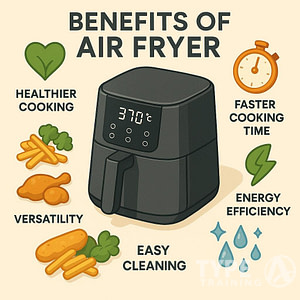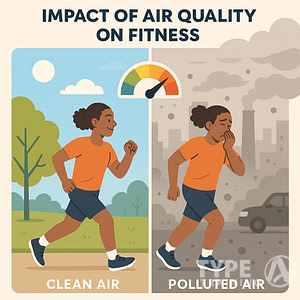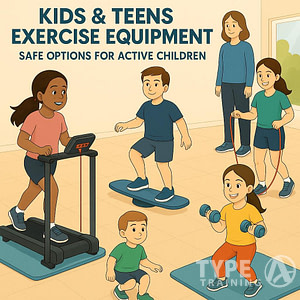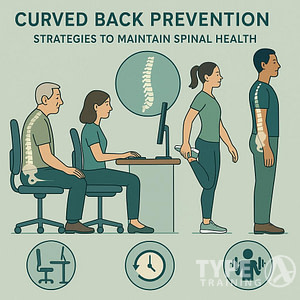If you’re struggling to lose weight on your own, a weight loss coach can be a valuable resource. But with so many coaches out there, it can be hard to know where to start. In this article, we’ll guide you through the process of choosing a weight loss coach, from what they do to how much they charge.
First, we’ll cover the basics: What is a weight loss coach, and what do they do? We’ll also delve into how weight loss coaching works, and whether it’s an effective way to lose weight. Then, we’ll explore whether you can lose weight without a coach, and how to know if you need one. Finally, we’ll help you find a coach, and give you tips on what to look for and what questions to ask before committing to a service.
Key Takeaways
- A weight loss coach can be a valuable resource if you’re struggling to lose weight on your own.
- When choosing a coach, consider their qualifications, experience, and coaching style.
- Before committing to a coach, ask questions about their approach, fees, and availability.
What is a Weight Loss Coach?
A weight loss coach is a professional who guides and supports individuals in achieving their weight loss goals. They work with you to design a personalized diet and exercise plan that fits your lifestyle and preferences. They provide you with the tools and knowledge needed to make healthy choices every day.
Popular posts:
One of the most important roles of a weight loss coach is to provide accountability and motivation. They help you stay on track by regularly checking in on your progress and providing support when needed. They also work with you to anticipate and overcome any obstacles that may arise along the way.
Weight loss coaches are certified personal trainers who specialize in weight loss. They have a deep understanding of nutrition, exercise, and behavior change, and they use this knowledge to help you achieve your goals.
Working with a weight loss coach can be a game-changer for anyone struggling to lose weight. They provide the guidance and support needed to make sustainable lifestyle changes that lead to long-term weight loss success.
In summary, a weight loss coach is a personal guide who helps you achieve your weight loss goals through personalized plans, accountability, motivation, and support. They are experts in nutrition, exercise, and behavior change, and they work with you to make sustainable lifestyle changes that lead to long-term success.
What Do Weight Loss Coaches Do?
Weight loss coaches are professionals who help people achieve their weight loss goals. They work with individuals to create personalized plans that are tailored to their specific needs. A weight loss coach will motivate and encourage you throughout your weight loss journey and help you stay accountable.
Weight loss coaching is not just about creating a diet and exercise plan. Coaches help you identify the underlying issues that may be preventing you from achieving your goals. They help you understand your relationship with food and find ways to overcome any obstacles.
Coaches use a variety of strategies to help you achieve your goals. They may provide nutrition coaching to help you make healthy food choices, or health coaching to help you improve your overall well-being. They may also use methodology such as goal setting, habit tracking, and mindset training to help you stay on track.
One popular table for weight loss coaches is to offer six options for coaching. These options may include:
- One-on-one coaching sessions
- Group coaching sessions
- Online coaching programs
- Personalized meal plans
- Exercise plans
- Accountability tracking tools
With the help of a weight loss coach, you can make lasting changes to your lifestyle and achieve your weight loss goals.
How Does Weight Loss Coaching Work?
If you’re looking to lose weight and want support, weight loss coaching may be a good option for you. Here are the four main steps that are involved in weight loss coaching:
Step 1. Build a Nutrition and Exercise Plan
The first step in weight loss coaching is to create a customized meal plan and exercise routine that works for you. Your coach will work with you to determine your goals, preferences, and challenges. They will then create a nutrition and exercise plan that is realistic and achievable. This plan will be tailored to your specific needs and lifestyle.
Step 2. Follow Through on the Agreed-Upon Plan
Once you have a nutrition and exercise plan, it’s time to put it into action. This step involves making changes to your diet and exercise routine. It’s important to remember that small changes can lead to big results. Your coach will help you stay on track and provide support and encouragement along the way.
Step 3. Tell Your Coach How the Changes Went
Accountability is a key component of weight loss coaching. In this step, you will report back to your coach about your progress. You will discuss what went well and what challenges you faced. Your coach will use this information to make adjustments to your nutrition and exercise plan as needed.
Step 4. Work Together to Solve Problems
Weight loss is not always easy, and challenges will inevitably arise. In this step, you and your coach will work together to identify any obstacles that are preventing you from reaching your goals. Your coach will help you develop strategies to overcome these challenges and stay on track.
Overall, weight loss coaching is a collaborative process that involves building a nutrition and exercise plan, following through on that plan, being accountable for your progress, and working through any challenges that arise. With the support of a coach, you can achieve your weight loss goals and develop healthy habits that will last a lifetime.
Is Weight Loss Coaching Effective?
If you’re struggling to lose weight, you might be wondering if weight loss coaching is an effective solution. The answer is yes, weight loss coaching can be very effective. Here’s why:
Sustainable Results
Weight loss coaching is focused on helping you make sustainable changes to your lifestyle. This means that you’re more likely to see long-term success with weight loss coaching than you would with a crash diet or other short-term solution.
Evidence-Based Science
Weight loss coaching is based on the latest scientific research on weight loss and nutrition. Your coach will use this knowledge to help you make informed decisions about what to eat and how to exercise.
Proven Benefits
Studies have shown that weight loss coaching can lead to significant weight loss and improved overall health. For example, one study found that people who worked with a weight loss coach lost an average of 9% of their body weight, compared to just 2% for those who tried to lose weight on their own.
Unique Genetics and Medical History
Your weight loss coach will work with you to create a personalized plan that takes into account your unique genetics and medical history. This means that you’ll be more likely to see results that are tailored to your specific needs.
Psychology and Performance
Weight loss coaching also focuses on the psychological aspects of weight loss. Your coach will help you identify and overcome the emotional barriers that may be holding you back from reaching your goals. They’ll also help you improve your performance by setting achievable goals and tracking your progress.
In conclusion, weight loss coaching can be a very effective solution for those struggling to lose weight. By focusing on sustainable changes, evidence-based science, and personalized plans, weight loss coaching can help you achieve long-term success and improve your overall health.
Can You Lose Weight Without a Coach?
Yes, you can lose weight without a coach, but it will require effort and dedication. Here are some tips to help you on your weight loss journey:
Develop a Solid Understanding of Nutrition and Exercise
Understanding the basics of nutrition and exercise is crucial to losing weight. You need to know how many calories you should be consuming each day, what types of foods are healthy, and how much physical activity you should be doing. There are many resources available online that can help you learn about these topics.
Find an Eating Plan That Works for You
There are many fad diets out there that promise quick weight loss, but they are often unsustainable and can be harmful to your health. Instead, focus on finding an eating plan that works for your lifestyle and preferences. This could be a low-carb diet, a vegetarian diet, or simply a balanced diet with plenty of fruits and vegetables.
Set Realistic Goals
Setting realistic goals is important to avoid burnout and disappointment. Start with small, achievable goals, such as losing 1-2 pounds per week, and gradually increase your goals as you make progress.
Hold Yourself Accountable
Holding yourself accountable is key to making progress. Keep track of your food intake and exercise using a journal or app, and regularly evaluate your progress to see what is working and what needs to be changed.
Conquer Emotional Hunger
Emotional eating can be a major obstacle to weight loss. Learn to recognize when you are eating out of emotion rather than hunger, and find alternative ways to deal with your feelings, such as exercise, meditation, or talking to a friend.
In conclusion, while a coach can be helpful in achieving weight loss goals, it is possible to lose weight without one. By developing a solid understanding of nutrition and exercise, finding an eating plan that works for you, setting realistic goals, holding yourself accountable, and conquering emotional hunger, you can achieve your weight loss goals on your own.
How Do You Know if You Need a Weight Loss Coach?
The Top 5 Signs You Should Consider Hiring a Weight Loss Coach
- You know what you need to do but struggle to take action.
- You’re tired of making promises to yourself that you can’t keep.
- You feel like you’ve tried everything and nothing seems to work.
- You’re stuck in a rut and need help breaking free.
- You struggle to stick to your plans and need someone to hold you accountable.
If any of these signs resonate with you, it may be time to consider hiring a weight loss coach. A coach can help you set and achieve realistic weight loss goals, provide motivation and support, and help you develop a healthier relationship with food. They can also help you make positive lifestyle changes that will benefit your overall health and wellbeing.
Working with a weight loss coach can be a valuable investment in your health and wellbeing. It’s important to find a coach who is a good fit for you and who can provide the support and guidance you need to achieve your goals. With the right coach by your side, you can celebrate your successes and overcome any challenges that come your way.
How Much Does a Weight Loss Coach Charge?
The cost of hiring a weight loss coach varies greatly depending on several factors. According to survey results, the hourly rate can range anywhere from $30 to over $200. The price is mainly based on where the coaching takes place, the coach’s experience, and their area of expertise.
When considering the cost of a weight loss coach, it’s important to keep in mind that there are many variables to consider. The type of program, the length of the program, the number of sessions, and whether the coaching is done in a group or one-on-one setting can all affect the price.
However, there are two essential factors to consider when choosing a weight loss coach. First, does the coach offer a money-back guarantee? A good coach should be confident in their program and willing to offer a refund if it doesn’t work for you. The best weight loss coaches will offer a money-back guarantee and stand behind their program.
Second, does the coach offer proactive or reactive coaching? Proactive coaching is when the coach reaches out to offer advice and support without being prompted. Reactive coaching is when the client must initiate contact with the coach. A good coach should be proactive and offer support before the client even realizes they need it.
At Type A training, we meet both of these criteria. Our coaching program is designed to be proactive, and we offer a money-back guarantee that other programs are too afraid to offer. We give clients 30 days to see if our program is right for them, and if it’s not, we’ll refund their money and pay for them to start a program that better suits their needs.
In terms of budget, it’s important to consider the value that a weight loss coach can provide. While the cost may seem high, the benefits of having a coach can be invaluable. A coach can provide personalized support, accountability, and motivation to help you achieve your weight loss goals.
When it comes to monthly prices, it’s important to note that some coaches may offer package deals or discounts for long-term commitments. It’s worth discussing pricing options with a coach to see if there are any cost-saving opportunities.
Overall, the cost of a weight loss coach varies greatly, but it’s important to consider the value that a coach can provide. Look for a coach who offers a money-back guarantee and proactive coaching, and don’t be afraid to discuss pricing options to find a program that fits your budget.
Is a Weight Loss Coach Worth It?
If you’re struggling to lose weight, you might be wondering if a weight loss coach is worth the investment. Studies show that people who have coaching, accountability, and support are 65% more likely to reach their goals than those who don’t. However, it’s important to choose the right coach to avoid wasting your time and money.
Here are some warning signs to watch out for when choosing a weight loss coach:
- The coach only focuses on your food choices. This approach doesn’t teach you how to make better decisions or address the psychological reasons behind your eating habits.
- The coach is unavailable when you need them most. A good coach should be there to support you when you’re struggling to stick to your plan.
- You feel like you’re just a number to them. A good coach should be interested in your goals and invested in your success.
To ensure that you’re getting the most out of your weight loss coach, make sure to look out for these red flags. A good coach can provide valuable support and guidance, but it’s important to choose the right one.
How Do You Find a Weight Loss Coach?
Finding a weight loss coach can be a daunting task, but it is an important step in achieving your weight loss goals. You can choose to work with a coach locally or online. Both options have their pros and cons. Here are some ways to find a coach that is right for you:
Local Coach
If you decide to work with a local coach, you can search for “weight loss coach near me” on Google or ask for recommendations from people you know. Here are some pros and cons of hiring a local weight loss coach:
Pros
- You can meet with your coach in person. This allows your coach to read your body language and facial expressions, and change their feedback based on what they see.
- Your coach can recommend restaurants, gyms, and things to do in your area.
Cons
- You have to go to your coach’s office, which can be inconvenient if you have a busy schedule.
- You can only meet with your coach a few times a month, which may not be enough to work through the daily problems that keep you from sticking to your plan.
Online Coach
If you decide to work with an online coach, you can search for “weight loss coach online” on Google or look for coaches on social media or in local forums. Here are some pros and cons of hiring an online weight loss coach:
Pros
- You can communicate with your coach through text, email, or video chat, which is more flexible and convenient than meeting in person.
- You can work with your coach from anywhere in the world, and they will be there for you any time of day or night.
- You have a better chance of finding a coach who understands your situation, such as emotional eating, being a single parent, or dealing with the stress of running a business.
Cons
- You miss out on visual cues that you would get from meeting with your coach in person.
- It can be harder to find the right coach online, as there are many options to choose from.
When choosing a coach, it is important to consider convenience, ease of access, and what kind of communication you prefer. There is no right or wrong answer, and there is no one best way for everyone. The only thing that matters is that you think about your options and choose the type of coach who will help you stay on track and reach your goals.
What Training or Certifications Should a Weight Loss Coach Have?
When looking for a weight loss coach, it’s natural to wonder what kind of training or certifications they should have. While there are no legal requirements for weight loss coaches to hold a particular certification or degree, it’s generally a good sign if they are certified by a reputable organization.
However, not all coaching certifications are created equal. Just because a coach has a degree in exercise science or nutrition doesn’t necessarily mean they have the skills to help you reach your goals. Instead, it’s important to look at their experience and track record of success with clients who have similar goals to yours.
Certified personal trainers are considered great weight loss coaches, as they have expertise in exercise and can help you create a workout plan that aligns with your weight loss goals. Additionally, registered dietitians and nutritionists can provide guidance on healthy eating habits and help you create a meal plan that supports your weight loss journey.
Here are six options for certifications and qualifications to look for in a weight loss coach:
| Certification/Qualification | Description |
|---|---|
| Certified Personal Trainer (CPT) | Trained to create exercise programs that align with your weight loss goals |
| Registered Dietitian (RD) | Trained to provide nutritional guidance and create meal plans that support weight loss |
| Certified Health Coach (CHC) | Trained to provide guidance on lifestyle changes that can support weight loss |
| Licensed Mental Health Counselor (LMHC) | Trained to provide support for emotional eating and other mental health concerns related to weight loss |
| Certified Weight Management Specialist (CWMS) | Trained to provide guidance on weight loss strategies and help clients set achievable goals |
| Certified Nutrition Specialist (CNS) | Trained to provide nutritional guidance and create meal plans that support weight loss |
Remember, while certifications can be a good indicator of knowledge and experience, it’s important to also consider a coach’s track record of success with clients. Ask about their past successes and what they will do to help you reach your goals. With the right coach, you can achieve your weight loss goals and improve your overall health and well-being.
What Should You Look for in a Weight Loss Coach?
When searching for a weight loss coach, it’s important to consider a few key factors to ensure you find the right fit for your needs. Here are some things to look for:
Budget-Friendly
One of the first things to consider is whether the coach fits your budget. Quality coaching doesn’t have to break the bank, but it’s important to find a coach whose prices are reasonable and within your budget.
Success Stories
Look for testimonials from people who have lost weight and kept it off with the coach’s program. You should also look for reviews from people who have used the program and had success with it. If the coach doesn’t have any success stories or positive reviews, it’s best to look elsewhere.
Personal Connection
It’s important to find a coach who you feel can connect with you on a personal level and understand what you’re going through. Look for a coach who seems like a good fit for your personality and needs.
Customized Approach
Everyone is different, so it’s important to find a coach who will customize the program to your needs. A good weight loss coach will take the time to create a plan that’s tailor-made for you, rather than using a one-size-fits-all approach.
Trustworthiness
Lastly, you want to find a coach who you can trust. Look for someone who has experience and a track record of success with clients. You should also feel comfortable talking to them and confident in their ability to help you achieve your goals.
Once you’ve found a coach who meets these criteria, it’s a good idea to talk to them on the phone and tell them a little about yourself and your situation. This will help you learn more about their coaching style and determine if they’re the right fit for you.
What Happens After You Have Chosen Your Coach?
After you have chosen your coach, the first step is to schedule a call with them. During this call, your coach will ask you questions about your likes, dislikes, and your goals. They will also have you fill out some initial assessments and take some measurements, such as your weight, to better understand your starting point. This information will help your coach create a personalized nutrition and exercise plan that is tailored to your needs.
Your coach’s main goal is to create a plan that is realistic, reasonable, and doable. They want you to be excited about your plan and confident that you can stick to it. If you have any doubts or concerns about your plan, it’s important to let your coach know.
Once your plan is created, your coach will help you set up any tools or apps that will help you keep track of your progress. You should expect to have regular check-ins with your coach to discuss how you are progressing, if you are sticking to the plan, and if any changes need to be made.
It’s important to remember that setbacks and mistakes are a normal part of the process. If you encounter any problems or obstacles, it’s important to be honest with your coach so they can help you overcome them. Your coach is there to support you and give you the tools you need to succeed.
Here are some tips to help you communicate effectively with your coach:
- Let your coach know if something isn’t working for you.
- If you’re feeling frustrated or stuck, talk to your coach about it.
- Don’t be afraid to share any embarrassing moments or setbacks with your coach. They are there to help you overcome them.
In conclusion, after you have chosen your coach, you can expect to have a call with them to discuss your goals and create a personalized plan. Your coach will help you set up any tools to track your progress and will have regular check-ins with you to discuss your progress. Remember to be honest with your coach if you encounter any problems or setbacks. They are there to support you and help you reach your goals.
Conclusion
Now that you have learned how to find the right weight loss coach, you can start your journey to a healthier lifestyle. Certified personal trainers are considered great weight loss coaches, and they can provide you with the necessary guidance and motivation to help you achieve your goals. Don’t hesitate to reach out to the coaching services to get started. With the right coach, you can make positive changes in your life and achieve your desired results.
Frequently Asked Questions
What does a weight loss coach do?
A weight loss coach is a trained professional who works with clients to help them achieve their weight loss goals. They provide guidance and support to help clients make lifestyle changes, develop healthy habits, and stay on track with their weight loss journey. A weight loss coach may also provide education on nutrition, exercise, and other healthy lifestyle habits.
How do I find a weight loss coach?
To find a weight loss coach, you can start by asking for recommendations from friends or family members who have worked with a coach before. You can also search online for weight loss coaches in your area. Look for coaches who have experience working with clients who have similar weight loss goals as you. It’s important to choose a coach who you feel comfortable working with and who has a coaching style that fits your needs.
How much should a weight loss coach charge?
The cost of a weight loss coach varies depending on several factors, including the coach’s experience, location, and the services they offer. Some coaches charge by the hour, while others offer package deals. On average, you can expect to pay anywhere from $75 to $200 per hour for a weight loss coach. It’s important to consider the cost of coaching as an investment in your health and well-being.
Are weight loss coaches worth it?
Working with a weight loss coach can be a valuable investment in your health and well-being. A coach can provide the guidance, support, and accountability you need to achieve your weight loss goals. They can also help you develop healthy habits that will last a lifetime. However, it’s important to choose a coach who is experienced, knowledgeable, and who has a coaching style that fits your needs.
Is there a big difference between a health coach and a personal trainer?
While there is some overlap between the roles of a health coach and a personal trainer, there are also some key differences. A health coach focuses on helping clients make lifestyle changes that promote overall health and well-being, while a personal trainer focuses on helping clients achieve specific fitness goals through exercise. A health coach may provide education on nutrition, stress management, and other healthy habits, while a personal trainer may focus more on strength training and cardio workouts.
Is a weight loss coach the same as a nutritionist?
While both weight loss coaches and nutritionists can provide guidance on healthy eating habits, there are some key differences between the two. A weight loss coach focuses on helping clients achieve their weight loss goals through lifestyle changes, while a nutritionist focuses on helping clients achieve optimal health through proper nutrition. A weight loss coach may provide education on healthy eating habits, but they may not have the same level of expertise as a nutritionist.












